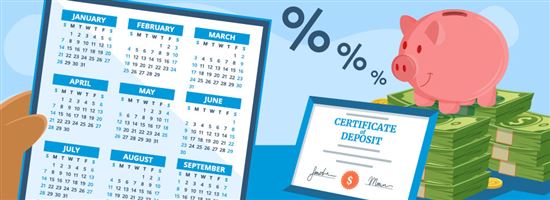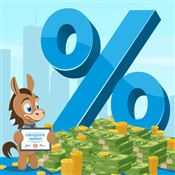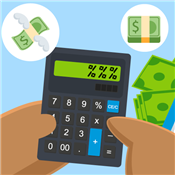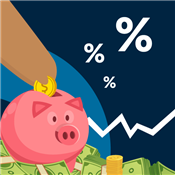Best 9 Month CD Rates for June 2024
Ad Disclosure: This article contains references to products from our partners. We may receive compensation if you apply or shop through links in our content. This compensation may impact how and where products appear on this site. You help support CreditDonkey by using our links.
Lock in a high APY with a 9-month CD. Find out who has the best 9-month CD rates today.
 |
- Western Alliance Bank:
3.40% APY
If you're looking to save money for a few months and earn a good interest rate, consider 9-month CDs. Many online banks and credit unions out there offer competitive rates.
PRO TIP: Currently, one of the highest rates on a 9-month CD is with Western Alliance Bank at an impressive 3.40% APY.
Since it is a relatively short-term commitment, you can access your funds earlier while helping you control your spending. With that, let's explore the current 9-month CD rates.
9-Month High-Yield CD - 3.40% APY
- No fees
- $1 minimum deposit
- 24/7 online access
- FDIC insured
What Is a 9-Month CD?
A 9-month Certificate of Deposit is a savings account that holds a fixed amount of money for a fixed term of nine months. In exchange for the commitment, banks and credit unions usually offer a fixed rate that's higher than a regular savings account.
Typically, you can't take money out of the CD for the entire 9-month term. If you withdraw prematurely, you might face penalties that can go up to 90 days' worth of interest.
One of the highest rates on a 9-month CD is Western Alliance Bank:
How Much Does a 9-Month CD Pay?
If you put $25,000 in a 9-month CD at 5% APY, you'll earn about $932 once the term ends. Your earnings will depend on the interest rate and the deposit amount.
Here's a table to show how much you can earn on a 9-month CD.
| Rate | $10,000 | $25,000 | $50,000 |
|---|---|---|---|
| 0.00% | $10,000 | $25,000 | $50,000 |
| 0.50% | $10,037 | $25,094 | $50,187 |
| 1.00% | $10,075 | $25,187 | $50,375 |
| 1.50% | $10,112 | $25,281 | $50,561 |
| 2.00% | $10,150 | $25,374 | $50,748 |
| 2.50% | $10,187 | $25,467 | $50,935 |
| 3.00% | $10,224 | $25,560 | $51,120 |
| 3.50% | $10,261 | $25,653 | $51,307 |
| 4.00% | $10,299 | $25,746 | $51,493 |
| 4.50% | $10,336 | $25,839 | $51,678 |
| 5.00% | $10,373 | $25,932 | $51,864 |
| 5.50% | $10,410 | $26,024 | $52,049 |
Check out this CD calculator to test other rates and amounts.
Is a 9-Month CD Worth It?
A 9-month CD is worth considering if the APY is comparable to, or higher than, regular savings accounts or other short-term options. You'll get peace of mind knowing you're earning guaranteed returns.
But make sure you don't need the money for the next 9 months. On the plus side, since the term is short at 9 months, you won't have to wait too long to access your money again.
This term can also work well if you're looking to build a CD ladder, depending on your financial goals.
Here are some of the top CD rates by term:
| Term | Bank and Yield Rate |
|---|---|
| 3 Month | Western Alliance Bank: |
| 6 Month | Western Alliance Bank: |
| 9 Month | Western Alliance Bank: |
| 1 Year | Western Alliance Bank: |
Can You Lose Money on a 9-Month CD?
No. Generally, you won't lose money on 9-month CDs. Your deposits in CDs are federally insured for up to $250,000 if your bank or credit union is a member of the FDIC or the NCUA. So, even if your bank suddenly closes in the next 9 months, you are guaranteed to get your money back.
However, you can lose a part or all of your interest earnings if you close your CD before it matures.
Early withdrawal penalties would depend a lot on the CD term length. In this case for 9-month CDs, it would usually be the 90 days' worth of interest. Penalties are set at the discretion of the bank or credit union so it may vary.
Pros and Cons of 9-Month CDs
Pros:
- Shorter time commitment
- Can have high APY
- Fixed rate across the term
- Federally insured
- Prevents unnecessary spending
9-Month High-Yield CD - 3.40% APY
- No fees
- $1 minimum deposit
- 24/7 online access
- FDIC insured
Cons:
- Early withdrawal penalties
- Cannot add more deposits once opened (unlike regular savings accounts)
High Yield Savings Account - 3.80% APY
- No fees
- $1 minimum deposit
- 24/7 online access
- FDIC insured
No, usually you cannot withdraw a CD before it matures. Otherwise, you'll be paying early withdrawal penalties.
How to Choose the Best 9-Month CD
9-month CDs are fairly common in the market, so you may find it difficult to sift through the offerings. Here are some questions to ask before you lock in a CD:
- What is the APY?
You'd want the highest APY to maximize your earnings on a CD. Look to online banks and credit unions to get the best rates. - How much is the early withdrawal penalty?
If you think closing a CD early is possible, you'll want to get one that has the lowest penalties to cut some losses. Or look for no-penalty CDs if you want to avoid early withdrawal charges completely. - Is there a minimum deposit requirement?
Some CDs may have minimum opening requirements ranging from as low as $1 to over $100,000 (for Jumbo CDs). Find a CD that fits your budget best.
CD terms can range from as short as 1 month and up to 10 years in length. However, not all banks will offer the same CD terms. If you can't find a 10-year CD at your usual institution, try shopping around other banks and credit unions.
9-Month High-Yield CD - 3.40% APY
- No fees
- $1 minimum deposit
- 24/7 online access
- FDIC insured
How to Use a 9-Month CD in a Ladder
CD laddering is a common strategy used on CDs where you split up your money into multiple CDs. The idea is to have CDs mature in regular intervals, so you can withdraw regularly if you need to. Plus, you can take advantage of good rates offered on some CD terms.
For example, say you have $60,000 on hand and you want a CD to mature every 3 months in one year. One way to do it is to open 4 CDs at once with varying terms, such as:
- 3-month CD: $15,000
- 6-month CD: $15,000
- 9-month CD: $15,000
- 12-month CD: $15,000
As each CD matures, you can reinvest them in 12-month CDs. This way, you'd continue to have a CD mature every 3 months indefinitely. Or you can withdraw if you need the funds.
Use this CD Ladder calculator to see how much you can earn in a ladder.
Alternatives to 9-Month CDs
While 9-month CD rates can be impressive, they might not be the best fit for you. Here are other options you can consider:
High-Yield Savings Accounts
Online high-yield savings accounts can give competitive rates too although they are not fixed like CDs. But, you get easy access to your funds and no early withdrawal fees.
- Western Alliance Bank:
High Yield Savings Account - 3.80% APY - Mission Valley Bank:
High Yield Savings Account - 3.86% APY - Valley National Bank:
High-Yield Savings Account - 3.90% APY
No-Penalty CDs
If you're not sure about tying up your money, no-penalty CDs let you withdraw before the term ends with no early withdrawal fees. Think of it like a savings account with locked-in returns.
- Mission Valley Bank:
3-Month No-Penalty CD - 3.80% APY - Sallie Mae Bank:
14-Month No Penalty CD - 3.00% APY
Longer term CDs
If you can hold off for a few more months, some longer CD terms might offer higher APY.
- Sallie Mae Bank:
14-Month High-Yield CD - 3.50% APY - Western Alliance Bank:
12-Month High-Yield CD - 3.30% APY
Shorter term CDs
In contrast, if you need your money sooner, shorter CD terms like 3 to 7 months might suit you.
- Western Alliance Bank:
6-Month High-Yield CD - 3.50% APY
Depending on their APY and other features, either a 9-month or 1-year CD can be better. If you have a shorter timeframe, a 9-month CD is better for you. Ultimately, your preferences will decide which CD is better for you.
9-Month CD FAQs
What happens at the end of a 9-month CD?
Your bank or credit union usually will let you know before your 9-month CD matures. Before it matures decide if you want to:
- Automatically renew the CD.
- Renew the CD with a different amount, term, or both.
- Withdraw all your funds and close the CD.
Make sure to inform your bank before or during the grace period after your CD matures. Otherwise, the CD might renew and early withdrawal penalties will already apply.
When is the best time to get a 9-month CD?
As a rule of thumb, get CDs when interest rates are at their highest. 9-month CD rates follow the movement of the Fed Funds rate. So if the Fed Funds rate goes up, you can expect CD rates to increase as well which will be the best time to get one.
Will 9-month CD rates go up?
If the Fed Funds rate continues to increase, you can expect 9-month CD rates to go up as well. But that is not guaranteed. If you want to see whether CD rates will continue to rise, try to follow the Fed Funds rate changes.
Is a 9-month CD better than a savings account?
It really depends on personal preference. If you're fine with not touching your money for a few months, a 9-month CD with a high rate could be good. But, if you like easy access to your funds, it might be better to go for a savings account instead.
Is there a CD that pays monthly?
Yes, CDs usually pay interest every month. The frequency can vary depending on the CD. But if you want to maximize your interest earnings, try not to withdraw your interest to get the full effect of compound interest.
Bottom Line
A 9-month CD is a good choice if you already have money saved and want stability and guaranteed returns. Check out Western Alliance Bank:
Just remember your funds will be locked up for a while. So make sure it fits your current financial situation.
9-Month High-Yield CD - 3.40% APY
- No fees
- $1 minimum deposit
- 24/7 online access
- FDIC insured
If you want easy access to your money, consider looking into other options like high-yield savings accounts.
High Yield Savings Account - 3.80% APY
- No fees
- $1 minimum deposit
- 24/7 online access
- FDIC insured
Rue Atanacio is a research analyst at CreditDonkey, a bank comparison and reviews website. Write to Rue Atanacio at rue.atanacio@creditdonkey.com. Follow us on Twitter and Facebook for our latest posts.
Note: This website is made possible through financial relationships with some of the products and services mentioned on this site. We may receive compensation if you shop through links in our content. You do not have to use our links, but you help support CreditDonkey if you do.
|
|
| ||||||
|
|
|







